This article is part of a 22-part miniseries on the history and stars of Iranian football released ahead of Iran's participation in Group B of the 2022 Qatar World Cup in November. You can explore the rest of the series here.
The last time Iranian women were allowed to freely purchase tickets for a football game, then go and watch it in person, was on June 6, 1981.
The Tehran Derby took place that year not 18 months after the victory of the Islamic Revolution. Shortly thereafter, Iran’s Shiite sources of emulation – Grand Ayatollahs considered the most learned members of the Twelver Shia clergy, whose interpretations of the Quran carry legal as well as spiritual weight – agreed that it was “haram” for a woman to look at a man’s bare arms and legs.
Mostafa Davoudi, then-year of the government’s Physical Education Organization, duly declared with the blessing of the Iranian Football Federation that women were henceforth banned from attending matches.
The ban remains in force to this day, supported at the very top of the chain of command in Tehran. Ayatollah Khomeini said there was “something corrupt” in women so much as looking at pictures of footballers or watching games on television.
In 2003, the newspaper Islamic Republic published an op-ed by Ayatollah Ali Khamenei in which the second Supreme Leader of the Islamic Republic wrote: “This [women watching men’s sports] is haram and illegal. Disobedience is a violation.” In an earlier fatwa, he said the same activity could lead to “sin and corruption”.
Other clerics have made the same, confused assertions. In 2013 the official website of Ayatollah Naser Makarem Shirazi, a now 95-year-old Shia source of emulation with long-standing government ties, published his response to a fresh request from a follower for clarification on women’s presence in football stadia.
“The prevailing atmosphere in sports is not always suitable for women,” Shirazi wrote, “and there is no doubt that the mixing of young people, and their freedom, is the cause of many moral and social problems. In addition, male athletes’ clothing in not suitable for proximity to women.”
Despite the opposition of the Shia clergy, explicit orders not to attend and the potentially brutal treatment they can expect at the stadium gates, Iranian women have spared no effort over the past two decades to fight their way onto the stands. In 2004, during a friendly match between Iran and Germany, Iranian women were involved in a violent altercation with police at the main entrance. At the same time, a number of German women were permitted to enter.
The incident led to the creation of a new public campaign in which women wore white headscarves embroidered with the text “Women’s share is half of Azadi”. It has been supported by activists Asieh Amini, Narges Mohammadi and others, and garnered international attention during the spring 2006 World Cup qualifiers.
White scarf campaign members gathered in front of the stadium before a match with Japan. Then a group of women's rights activists, female lawyers and journalists write a joint open letter to the stadium’s security department, demanding they be allowed to enter. Some 500 women gathered at the eastern entrance on the day of a match with Bahrain, and tried to force the way in as the gates were opened for the Bahraini team.
These tense incidents were just the beginning. In the years that followed, female fans in Iran have kept pushing for their rightful place on the stands. The level of courage and ingenuity they have shown has been matched by a lack thereof on the part of FIFA, which to this day has not imposed any serious penalty on Tehran for its documented decades of sex discrimination in sports.
visit the accountability section
In this section of Iran Wire, you can contact the officials and launch your campaign for various problems




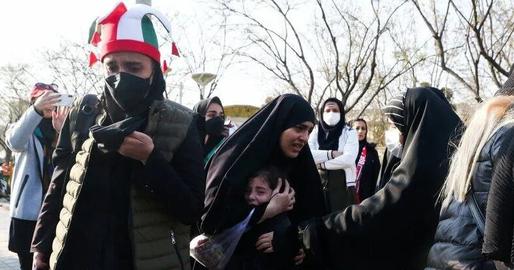
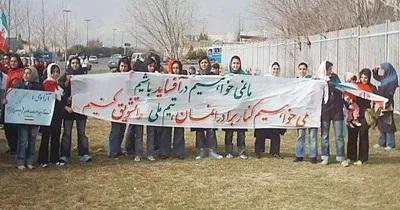

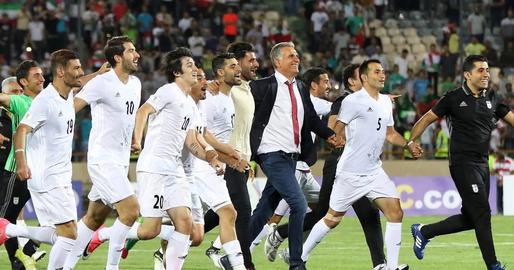
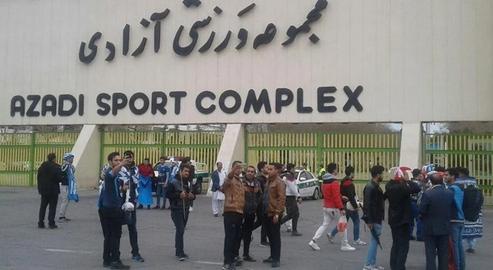
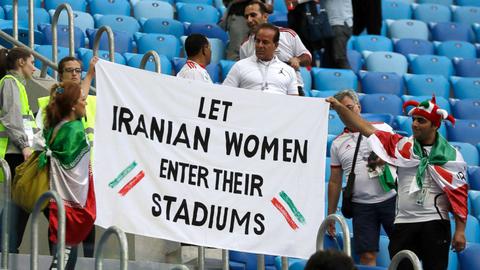
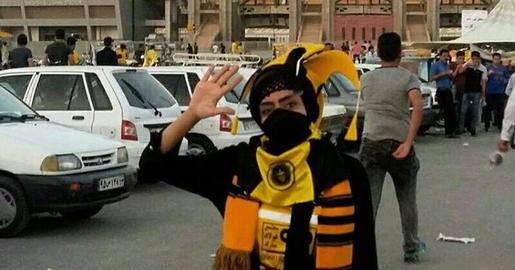










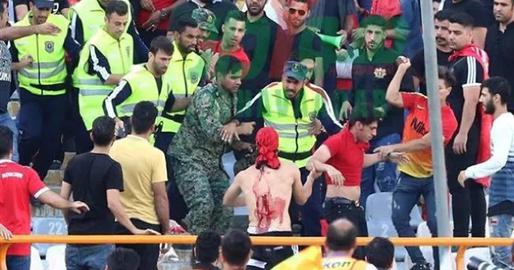
comments